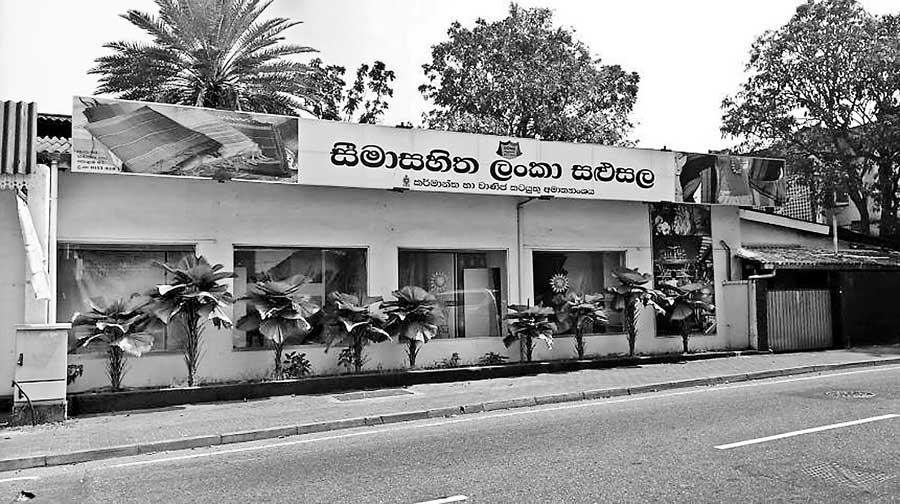Reply To:
Name - Reply Comment
Last Updated : 2024-04-19 16:08:00

- State-owned enterprises can be found in almost every country in the world. Norway is one of the best countries where SOEs are very efficiently managed. South Africa also fares well but cannot point to the same levels of success
- In most of the world, SOEs play critical roles in helping a government offer a service the public needs when the private sector cannot or hesitant to offer
“There is no business for the government to be in business,” is a formula advocated by most western economic experts. They believe Government bureaucracy is not equipped to run State-owned enterprises (SOEs) in a profit-driven management style as in the private-sector. 
According to these experts, since a SOE is by definition run by a group of people who do not have a stake in it, they would have no incentive to run it profitably and efficiently. The owners (the general public) are not authorised to monitor and sanction their agents (the SOE management) and therefore they are not aware how much effort the agents have made.
A professional economist might sum up the situation by saying that SOEs are inefficient because scarce resources are not being put to their best use.
When one studies the available reports and statistics of Sri Lankan SOEs, it becomes clear that both the above arguments are valid.
The total amount of losses incurred by Sri Lankan SOEs have shocked even the Finance Minister. He stressed the need to re-evaluate and rethink and decide whether Government support for those loss-making entities should be continued. 16 SOEs reported net losses of Rs.157 billion last year, up from Rs.87 billion in 2017.
Out of 422 SOEs, 55 have been identified as strategic enterprises, of which 37 recorded a net profit amounting to Rs.131 billion in 2018, a drop-in net profit compared to Rs.136 billion made by 39 SOEs in 2017.
Analysing the statistics, Minister Mangala Samaraweera said. “While some of these SOEs provide essential services to the country, there are enterprises that are making huge losses, such as power, airlines, and cooperative areas, which have caused the Treasury serious losses. As a country, now we have to question if we can bear the losses anymore”
There is no clear indication of the exact number of SOEs in Sri Lanka. According to the Performance Report for 2017 issued by Department of Public Enterprises, the figure is given as 400. Latest report by the Government says 422. According to Advocata Institute, a private sector think-tank, the figure is 527.
The Advocata Institute has made some interesting comments on SOEs. It says, “Many of Sri Lanka’s SOEs have no commercial purpose, are riddled with corruption and mismanagement and, in the core justification of existence, not attractive to private investors looking for profit making ventures.”
Some of the SOEs have not submitted financial reports for many years. For example, Advocata says, “Public are unable to track the financials of Lanka Salu Sala since its 30-million-rupee loss in 2009/10 as there has been no annual reports or performance reports published and available to the public.
State-owned enterprises can be found in almost every country in the world.Norway is one of the best countries where SOEs are very efficiently managed. South Africa also fares well but cannot point to the same levels of success. China’s state-owned companies enjoy record profits last year. New Zealand is also another success story.
Therefore, state ownership itself is not necessarily the problem of success or failure. Instead, success more often hinges on managerial skill and autonomy.
The knee-jerk reaction to paralysis in SOEs is to call for privatisation, but is that the only solution?
In most of the world, SOEs play critical roles in helping a government offer a service the public needs when the private sector cannot or hesitant to offer. In other cases, like China’s One Belt One Road initiative, SOEs move into international markets to implement a broader national industrial policy and a realignment of existing commercial systems.
In China, SOEs are also mandated to establish the infrastructure to entice foreign direct investment: financial services systems, roads, power plants, airports, ports, hospitals, schools, and transportation systems.
All these countries aptly demonstrate that their SOEs are also successfully balancing both their social obligations to the public and need to remain competitive. Experience has taught them that it is only with proper planning and execution that this balance can be achieved.
"In China, SOEs are also mandated to establish the infrastructure to entice foreign direct investment: financial services systems, roads, power plants, airports, ports, hospitals, schools, and transportation systems"
SOEs’ corporate governance has two layers: one outside the companies, linked to the state’s ownership, and another inside the enterprises, performed by the board representing public and private shareholders. It is good practice that these two layers are separated, with clear roles and responsibilities. The government, in its role as owner, is responsible for defining an overall policy of state ownership, and should not interfere in daily running of the enterprise.
The countries who are successful in their SOEs also have clear state ownership policies. Singapore’s ownership policy is oriented to financial outcomes: assets must generate long-term risk-adjusted financial goals, otherwise the Directorate will be held responsible. Singapore’s government controls or has minority shares in about 1,000 companies throughout the world through Temasek Holdings -holding company owned by the Government of Singapore In China, there are thousands of SOEs with governance inspired by Singapore’s model. The government has recently said it plans to support more mixed public-private ownership to attract private investment and to enhance SOEs’ efficiency through exposure to market competition.
Coming back to the issue of privatisation, we must ask ourselves whether the Government shouldn’t first try to restructure and effect changes in top and higher management before thinking of any privatisation. It might be a worthy exercise. Analysts believe that our SOEs have incurred losses and a negative reputation because they are not being given enough autonomy and the higher management, including Directors, are weak and inefficient. When put to good use and managed well, our SOEs can help spur economic growth and development. There have been various proposals on reforming SOEs. Some have suggested that we follow the Chinese model. It is understandable why the Chinese model is attractive: China has five decades of experience in managing SOEs successfully. Another proposal is to follow the Norwegian model.
However, before selecting a model and moving further, the Government has to work out a road map for reforming SOEs. The following are few points to consider:
Preparation of comprehensive and continuous training programmes for directors and senior managers.
Be transparent and accountable through quality, timely and reliable reporting of SOE performance. This goes beyond financial reporting to integrated reporting, with SOEs being role models for good reporting practices. This also aids in building trust between the government (owner) and the citizens and other stakeholders (including other shareholders)
Government must move with speed in reforming these enterprises since there is still a long way to go. SOEs are a crucial clue of the puzzle in achieving economic recovery and promoting sustained economic development.

Add comment
Comments will be edited (grammar, spelling and slang) and authorized at the discretion of Daily Mirror online. The website also has the right not to publish selected comments.
Reply To:
Name - Reply Comment
On March 26, a couple arriving from Thailand was arrested with 88 live animal
According to villagers from Naula-Moragolla out of 105 families 80 can afford
Is the situation in Sri Lanka so grim that locals harbour hope that they coul
A recent post on social media revealed that three purple-faced langurs near t